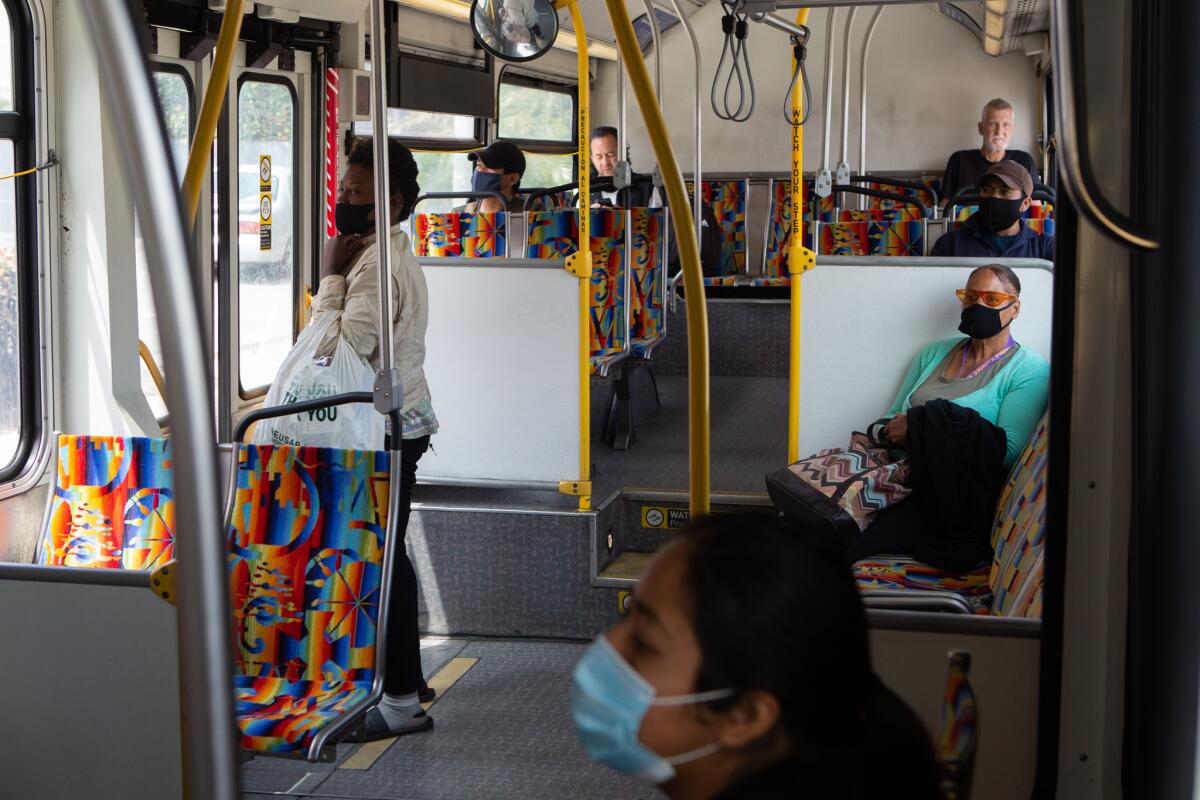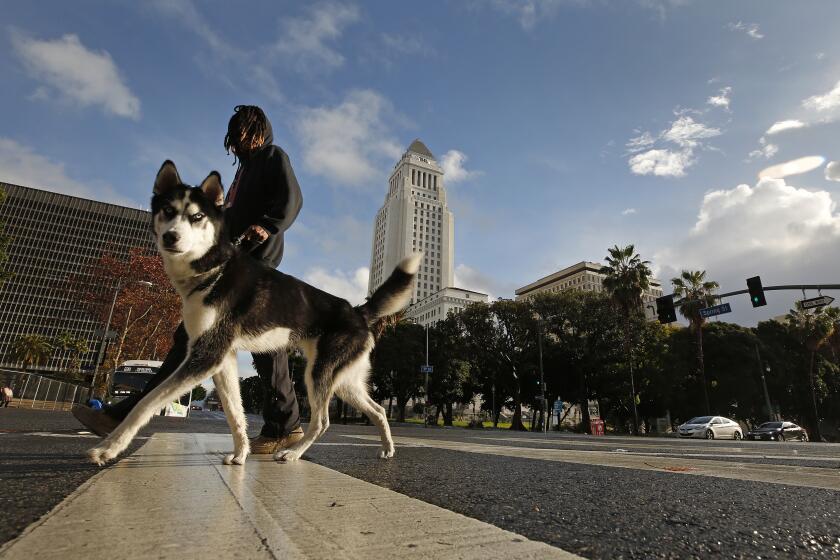L.A. Metro will use federal relief money to increase bus service, officials say

A new round of federal funding will allow Metropolitan Transportation Authority to restore bus and train rides throughout Los Angeles County, ensuring that pre-pandemic service can resume by this fall.
President Biden’s stimulus package, the American Rescue Plan, will deliver $1.6 billion to Southern California transit agencies, with a significant amount of that money going to Metro, transit officials said Thursday.
The exact amount that the county agency will receive wasn’t available.
Phil Washington, chief executive of Metro, said full service would return by September.
Metro reduced its transit services by 20% during the pandemic as ridership dropped and many Angelenos stayed home. Before the health crisis, Metro was averaging about 1.2 million boardings a day throughout its transit system.
Today, there are 550,000 boardings, officials said, and Metro’s transit system runs on a modified schedule.
L.A.’s budget crisis could soon be over, thanks to passage of the federal stimulus package.
Bus riders and advocates have pleaded in recent months with the agency to restore service, saying that low-income riders, the vast majority of whom are Latino or Black, are seeing longer waits and fuller buses, which make social distancing impossible.
Channing Martinez, director of organizing for the Bus Riders Union, a civil rights and climate justice group, said the lack of regular services had led to packed buses and concerns about the spread of the virus.
“The service cuts are a death sentence to Black and Latino bus riders,” Martinez said. “I’m glad that they are returning service.”
Officials said that sales tax — a big source of income for the transit agency — didn’t come in lower than expected, but revenue from fares, tolls and other sources came in worse than projected. As of January, the agency was facing a deficit of $714 million, officials said.
Separately, the Metro will also receive $277.5 million from the federal government for two lines under construction, the Purple Line down Wilshire Boulevard and the Regional Connector, which will tie together several rail lines under downtown Los Angeles.
Washington said that infusion will help “keep those projects on track, and even accelerate them a bit as well.” He said that the agency was able to accelerate construction of the Purple Line last year because there was less traffic on city streets.
Metro has already received $850 million from the Coronavirus Aid, Relief and Economic Security (CARES) Act.
More to Read
Sign up for Essential California
The most important California stories and recommendations in your inbox every morning.
You may occasionally receive promotional content from the Los Angeles Times.











